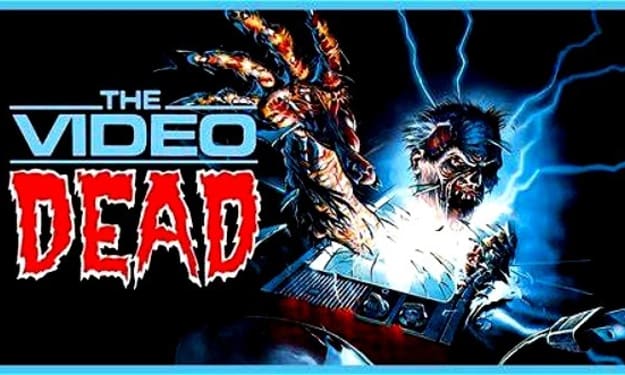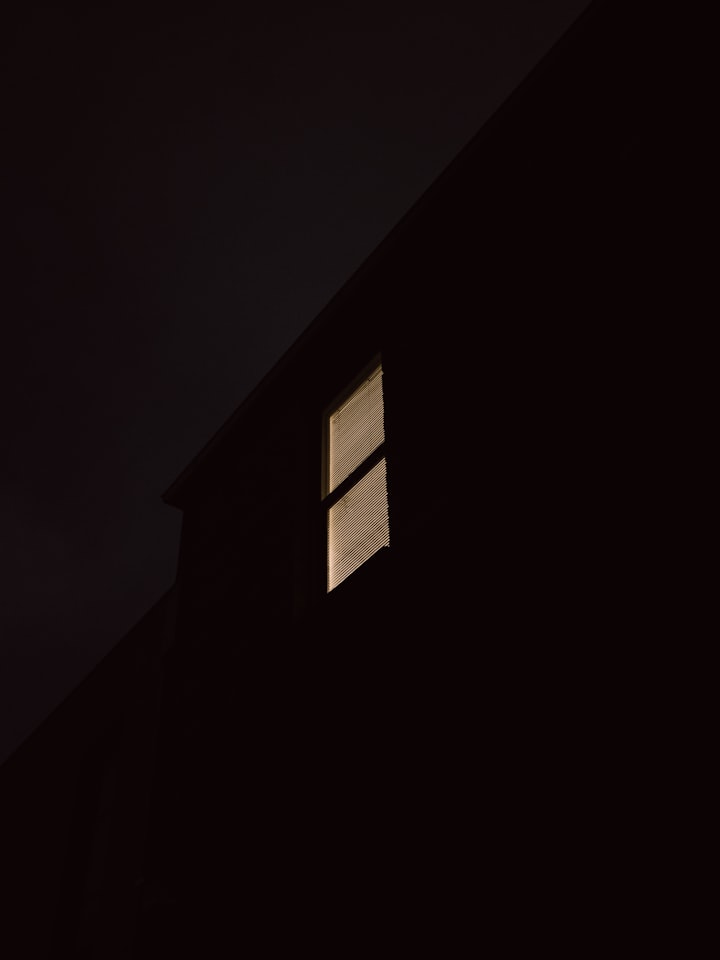Prophetic.
That's all you can say.
Natural Born Killers is an explosive, sensationalistic piece of satirical cinematic fireworks, an atrocious black comedy with an in-your-face Dadaistic sensibility (or perhaps, a lack of sensibility would better describe it). It stars Woody Harrelson, Juliette Lewis, Robert Downey Jr., Tom Sizemore, and Tommy Lee Jones (with appearances by Rodney Dangerfield among other less notable celebs) acting and behaving as living caricatures of some of the ugliest aspects of the human condition. No one in this film, except maybe for a Native American shaman played by the late Russell Means, has ANY redeeming value as an individual. There is no moment of let-up here; it's entirely bleak and distorted from start to finish. However, in the end, for a brief moment during a prison riot scene, it becomes almost transcendent, thanks in large part to the song on the soundtrack, "Anthem" by the late Leonard Cohen.
Mickey and Mallory Knox (Harrelson and Lewis) are two spree killers from a hick town with bad, put-on trailer park accents. However, they fill the roles they're playing excellently, and the movie opens with Leonard Cohen crooning over stock footage of predators combing the desert. Mallory and Mickey start the film with a bloody bang, Mallory beating and eventually both of them killing the patrons at a roadside diner. The music is loud, raucous, grinding punk by L7, and the footage alternates between rapid-fire jump cuts of various cinematic techniques, employed to stress either the schizophrenia of the murderous mind, or to serve as a satirical take on the MTV culture that both hypocritically condemns and exploits violence.
Mickey and Mallory drive through the night against a background of bluescreened images that almost seem edited together at random, although they all seem to suggest predation, destruction, and absurdity. We have a vignette that plays like a bad sitcom, where the introduction of Mickey to Mallory is set against the backdrop of her sexually abusive, horror movie homelife, a black and gruesome portrayal that stars Dangerfield as a particularly repugnant and grotesque incestuous human cartoon. Fondling his daughter's backside, we get a close-up of his eyes in predatory black-and-white, the emphasis and focus of the cinematography shifting the scene from one of humor to the horrific. But that is just for starters.
Mickey and Mallory abscond with Dangerfield's car, and Mickey goes to prison, where Mallory visits him, complaining that her dad is going to take her away, so that "she can't ever see you no more." She does this in a prison visiting room while masturbating him beneath the table. There is nothing with any purity in this film.
Mickey escapes from prison during a tornado, and the film briefly cuts to an animated scene straight from MTV's old "Liquid Television" series from the nineties. We'll be seeing this again, an animated Mickey flying, like a comic book hero, through animated hallways, brandishing a gun. He comes to claim Mallory, and both kill her father, decapitating him (his corpse is seen later in flash-forward scenes, getting up, headless as a revenant in an old horror comic from his bloody easy chair).
There is a huge audience "clap-track" sound as Mickey and Mallory depart, heading out on a bloody, Starkweather-like trail of serial murder. Mickey wants to kidnap other women for threesomes, an idea which infuriates Mallory. He does so anyway, and she leaves angrily.
She comes onto an auto mechanic played by Balthazar Getty and just as quickly dispatches him. We're then introduced to Jack Scagnetti (the late Tom Sizemore), a celebrity cop whose book "Scagnetti on Scagnetti" is a bestseller. Scagnetti has a special fixation with Mallory, as he himself is secretly a serial killer (we see him murdering a young hooker in a cheap hotel room). No one in this film, as I stated before, has any redeeming qualities.
Something I Can Never Have
Mickey and Mallory become lost in the desert, the film taking a slow, surrealistic turn as magic mushrooms lend the next scenes from the furious patchwork of images a certain resonate, mystic weight. The music of Nine Inch Nails, the song "Something I Can Never Have," helps.
They walk until they come across a Native American shaman (Russell Means) and his young grandson living in the desert. The Shaman tries to exorcise the demons (demonic, bloody faces are flashed intermittently throughout the film, one sitting at a microphone holding a cigarette as if a chat show interviewer) from Mickey and Mallory while they sleep. The demon within Mickey, however, rears or rises up, and the old man gets shot. Mallory for once scolds Mickey for his indiscriminate murder ("He fed us! He took us in there! Bad! Bad! Bad!")
Bitten by rattlers in the desert (the film hints that this may be cosmic retribution for killing the shaman), they drive to a brightly glaring pharmacy that looks like a headache in Hell, and shoot an obese attendant while trying to get a snake bite antidote. They are surrounded, arrested, and hauled off to prison, where they are both kept conveniently and unrealistically in the SAME PRISON.
(Beforehand, we see clips of the international media sensation arising from the arrest of the famed Deadly Duo, from France to Japan, to the streets of America, people are portrayed as having "Mickey and Mallory Fever," a kind of sick, twisted Beatlemania of murder. On the other side of that, we get an interview with a cop whose partner was killed by Mickey at a roadside donut stand. The actor in the television "recreation" of this murder is, incidentally, an uncredited Mark 'The Deliberate Stranger" Harmon.)
Man-Made Weather
We are then introduced to Wayne Gale (get it?), played by Robert Downey Junior, a manic, morally bankrupt, television tabloid journalist with an English accent and... no redeeming qualities. He's another cartoon character, a man who can't quite seem to regard mass murder as anything more than another way to sell tabloid newspapers and increase his ratings. His surface-level, shallow character belies a cheap con artist who has no moral center, and who neurotically alternates between prime-time television morality and a very real desire to dip his fingers in the same blood he covers so cynically with his sleazy show. He's a comic, chaotic, pathetic individual hiding behind a facade; but not very well.
He's instantly loathsome.
Gale has a vomitous intensity and an incredibly dislikable personality that is as manipulative as it is laughable. His show, "American Maniacs" organizes a prime-time prison interview (a' la Manson or Bundy) with Mickey, during the Superbowl, a time when the callous, incapable of human guilt Gale observes, "These guys want to tear their wives' heads off!" The interview goes down, with Mickie elaborating a rather inscrutable at times, and rather pointed others discourse on the "man-made weather" of the media machine. Scagnetti goes below in the bowels of the prison to try and make sexual advances to Mallory.
A prison riot breaks out.
Emptying Hell
I won't give away any more of the film. It does, indeed, descend into hell, as if all the demons flashed upon the screen are let loose, recalling to mind Shakespeare's line, "Hell is empty and all the devils are here." The riot itself, an incredibly, graphic and violent maelstrom of killing and revenge, intercut with footage from the Baby Boom era at points, to add a comic counterpoint to the gruesome spectacle unfolding, has a weird verisimilitude, almost as if it is scenes from an actual combat zone, not something filmed for a major motion picture.
Earlier we have met Warden McClusky (Tommy Lee Jones), another in the film's long line of human cartoon characters, a "piss elegant" (As Jones described the character) brutal man, who uses wires to torture the nose of an inmate, and who assures Scagnetti (who he recruits to murder Mickie and Mallory while under the cover of transporting them to a mental hospital). McCloskey knows his prison isn't a "prison anymore, Jack. It's a time bomb." And, oh, how right he is proven to be.
Natural Born Killers is a film that pushes violence and movie sadism, as well as the audience's capacity to endure an aural and visual, as well as an emotional bludgeoning for two hours, to the breaking point. It's loud, ugly, and bleak; its psychedelia is anything but uplifting; it's so over-the-top it can only be described in the terms that Antonin Artaud used when he conceived of a "Theater of Cruelty." It's an experimental, big-budget, seriously bad acid trip, with a few touches of pathos (we see Mickey's abusive homelife, his smiling cherub face contrasted with his revolting, white trash parentage and his father's suicide); and we know it's trying to tell us something. But what? Is it that violence in the media breeds violence in real life? If so, the film itself has been accused of being a major, major offender. [1]
Is it that we have become, as a society, more abusive, more neglectful of our children, and our social duties; more fragmented? Are more isolated souls looking for that one supreme thrill to whet our jaded appetites? Is that the message here? Is it that "things fall apart, the center cannot hold?" (To quote 'The Second Coming" by William Butler Yeats.)
Perhaps there is no message, really. Perhaps Natural Born Killers is "a tale told by an idiot, full of sound and fury, signifying nothing" (Shakespeare again). Aye, there's the rub.
It exists now as a cultural artifact, a cinematic precursor to the era of hyperviolent, mass-shootings we were moving into as the millennium dawned. It may simply be the cinematic equivalent of a "heavy metal vomit party" (to borrow a line from The Breakfast Club). It shot "the hypocrisy of the world out of the barrel of a gun," as Stone said in the commentary to the DVD of the film. Or something to that effect.
"I've seen the future, brother, it is murder," croons Leonard Cohen during the closing credits.
Yes.
Note.
[1] On March 15th, 1995, Sarah Edmondson and boyfriend Benjamin James Darras (both 18) commenced to murder cotton mill manager William Savage and later shot a woman named Pasty Byers. Byers survived the shooting and pressed a lawsuit against Stone and Time Warner. Savage was a friend to bestselling author John Grisham, and Grisham encouraged and aided Byers in her lawsuit, which accused Stone and Time Warner of putting out a "defective product," one that actually induced impressionable viewers to commit violent acts. The suit was later dismissed on First Amendment grounds. However, that was overturned. It was later dropped (Byers died of cancer in 1997) due to the decision that Stone and the production company could not have foreseen their film would, in point of fact, induce the shootings perpetrated by Edmondson and Darras.
According to Wikipedia, there are at least twelve similar criminal cases, including the infamous Columbine High School Massacre of 1999, with some sort of connection to the film.
Oliver Stone interview on "Natural Born Killers" (1994)
About the Creator
Tom Baker
Author of Haunted Indianapolis, Indiana Ghost Folklore, Midwest Maniacs, Midwest UFOs and Beyond, Scary Urban Legends, 50 Famous Fables and Folk Tales, and Notorious Crimes of the Upper Midwest.: http://tombakerbooks.weebly.com






Comments (1)
An excellent review of an excellent movie.